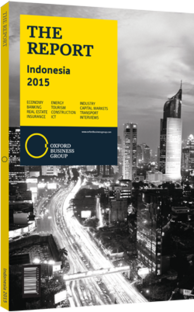Ridwan Kamil, Mayor of Bandung: Interview

Interview: Ridwan Kamil
What role do you envision for the private sector in your plans to improve urban mobility in Bandung?
RIDWAN KAMIL: Currently, 80% of the population use automobiles or scooters, while the remaining 20% use public transport. My vision is to flip these numbers by improving the reliability, usability and reach of our transport infrastructure. However, with around half of Bandung’s annual budget of Rp5trn ($413.3m) going towards staff salaries, we only have Rp2.5trn ($206.7m) per year or, over my five-year term, Rp12.5trn ($1.03bn) to commit, but the estimated cost of bringing Bandung’s infrastructure up to international standards is Rp60trn ($4.96bn), leaving us short by Rp47.5trn ($3.93bn).
To fill the gap I am looking towards utilising public-private partnerships and have been meeting with foreign investors to promote infrastructure opportunities. In 2015, we are planning to start construction of crucial projects, upgrading the Bandung airport, developing monorail and cable car networks, and building the skywalk, which will enable pedestrians to walk across bridges throughout the business district.
What strategies can attract foreign investors to develop Bandung as an entrepreneurial centre?
KAMIL: Bandung boasts more than 50 higher education institutions catering to a city population of 2.5m, 60% of which are under 40 years old. It is this combination of youth and education that underpins Bandung’s potential as an educational, technological and creative hub. To take advantage of these attributes we will be launching Bandung Technopolis, consisting of 1000 ha to the city’s east, in January 2015. We envision it as the Indonesian equivalent of San Francisco’s Silicon Valley or Hong Kong’s Cyberport. Once Technopolis receives special economic zone status, all permits will be handled independently within the complex, removing the need for companies to acquire a permit from the city proper. We have already received substantial interest from investors based in the US, Dubai and Japan. Bandung is also the first city to have a Smart City Council, consisting of 30 experts tasked with making a blueprint for Bandung over the next five years. Over the last 12 months we installed 5000 Wi-Fi hotspots, but with a target of 40,000, this is only the beginning. Bandung has 10,000 neighbourhoods and we intend to provide each with four wi-fi spots. We are also planning to introduce a smart card in 2015, which will allow users to ride public transport, pay for gas and complete transactions in a push to become a cashless society.
How will plans to improve interconnectivity between Jakarta and Bandung benefit the two cities?
KAMIL: There is an outdated perception that to be successful, a company must be based in Jakarta. Before becoming mayor I ran a very successful architecture firm headquartered in Bandung, which also conducted business in Jakarta and Bali, demonstrating how viable this city is. I do not see Jakarta and Bandung as two separate cities, but as opposite endpoints of an economic corridor. Business will not only happen in either city but also along the route between them, as industrial estates and commercial centres emerge. The central government is considering a high-speed rail system, like Japan’s Shinkansen, which will bring the cities even closer.
What steps are helping to ensure governmental transparency and delivery of essential services?
KAMIL: Transparency is a cornerstone of my administration and we have instituted an open data policy which lays bare our budget for the public to examine. Our citizens can see exactly how much we spend, for which department and on what projects. I am also the only mayor in Indonesia using social media as a city management tool. Bandung is the sixth-most active city on Twitter per capita in the world, and we are committed to harnessing this for the betterment of the city. All government departments have accounts, allowing the public to complain, post photos and raise concerns. Departments must, when carrying out their work, present before and after photos, ensuring accountability.
You have reached the limit of premium articles you can view for free.
Choose from the options below to purchase print or digital editions of our Reports. You can also purchase a website subscription giving you unlimited access to all of our Reports online for 12 months.
If you have already purchased this Report or have a website subscription, please login to continue.

